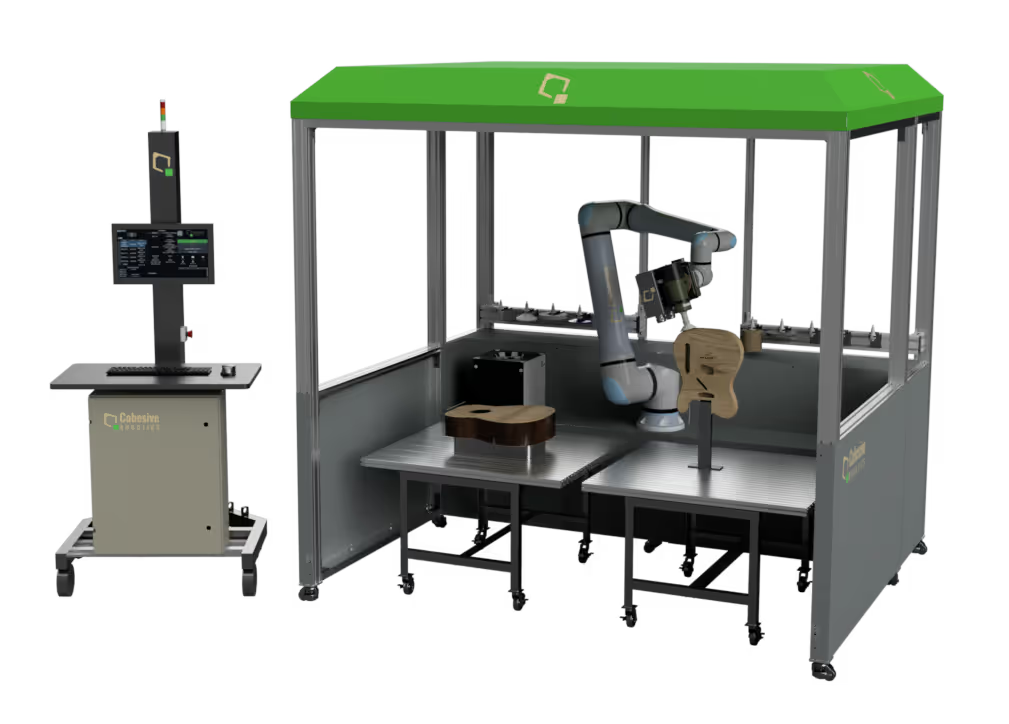Sanding is a ubiquitous process in a variety of industries, including woodworking, metalworking, aerospace, and automotive manufacturing. It can be the finishing touch on a product, or prepare a surface for coatings and paint. However, manual operation can lead to inconsistent quality, and several short-term and long-term physical injuries to human workers.
Robotic sanding increases efficiency and consistency in the sanding process, while also reducing the risk of injury to human operators. In non-automated setups, operators must rely on experience and visual inspections. Too much force, or the wrong speed, can lead to an inconsistent finish and premature degradation of the abrasive media. It’s a tedious process that can lead to rework, unnecessary scrap, and unhappy customers.

Our Smart Finishing™️ Robotic Workcell systems include the option of a Sanding Kit to automate your sanding material removal processes:

Precise force and speed applied to parts for more consistent output

Extend abrasive life and reduce usage by 30% or more

Boost your production capacity and reduce rework costs
The Smart Finishing™️ Robotic Workcell features a Sanding Kit option that includes the hardware, tooling, and our proprietary AI software to perform a range of operations to meet your production needs. Common applications include:
Rough up or remove irregularities on surfaces for optimal adhesion of paints and coatings.
Remove paint and rust to clean up a product's surface for further processing.
Use a series of finer grits to achieve target surface smoothness.
Take the first step to supercharge your high-mix operations. Speak with one of our automation experts and we'll provide a customized, free analysis for your operations.

Robotic sanding consists of an industrial or collaborative robot arm with a sander tool to perform a variety of material removal operations on wood, metal, composite and other material parts. Tooling can include orbital, dual action (DA), belt, and jitterbug sander types. Due to the importance of contact force and tool movement speed, a force control approach is often used for the best quality output.

When performed manually, sanding operations can be hazardous to employee health, especially without the proper personal protective equipment (PPE). This can include long-term effects due to dust inhalation and vibrational impact. Robotic sanding protects workers from these hazards while offering more consistent quality, higher production output levels, and more predictable adhesives usage.

Definitely! Our Smart Finishing™️ Robotic Workcell is designed with the high-mix manufacturer in mind. Our integrated vision system and proprietary AI software scans, understands, and automatically programs and operates the robot for whatever part, or batch of parts, is present.
Get our handy spec sheet to share with your team. See if the Smart Finishing™ Robotic Workcell is the solution to your production needs.
Download